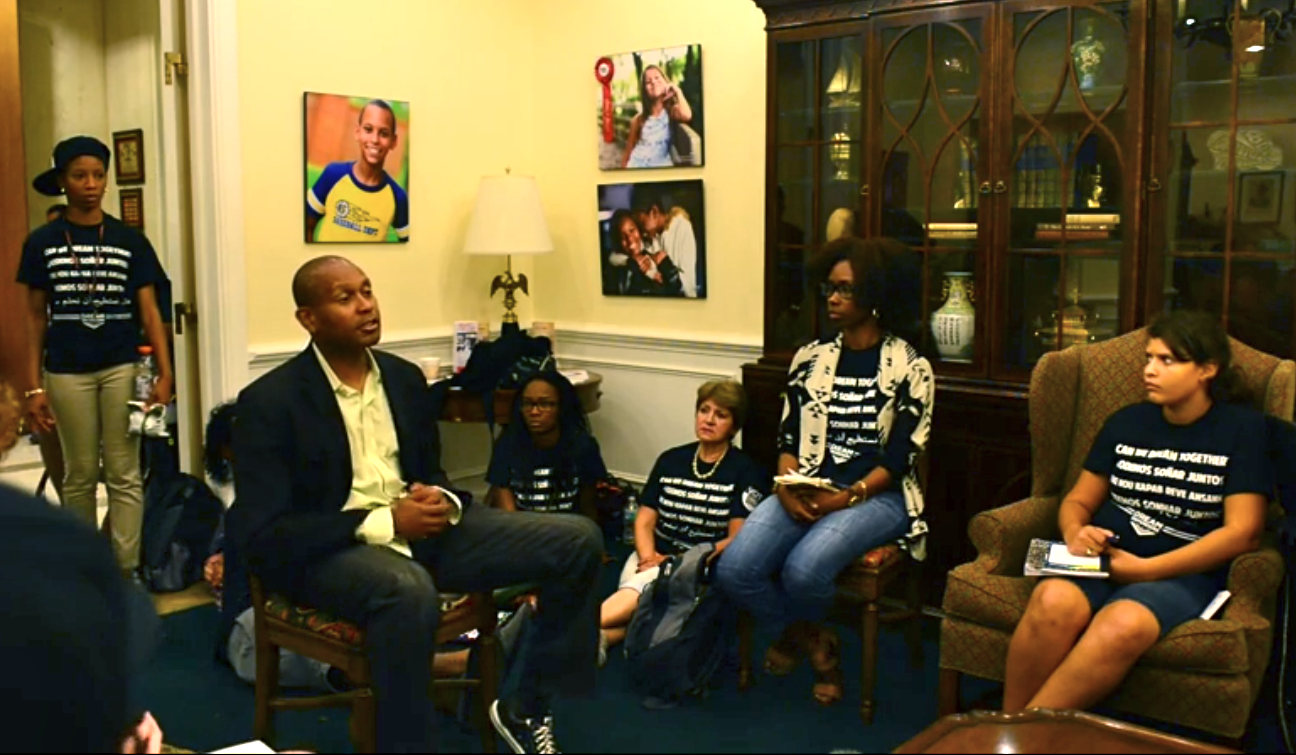Sanctuary for the Abused
Sunday, August 25, 2013
Betrayal Trauma

What is Betrayal Trauma Theory?
Short Definitions
The phrase "betrayal trauma" can be used to refer to a kind of trauma (independent of the reaction to the trauma). E.g. This definition is on the web: "Most mental health professionals have expanded the definition of trauma to include betrayal trauma.
Betrayal trauma occurs when the people or institutions we depend on for survival or those we trust violate us in some way. An example of betrayal trauma is childhood physical, emotional, or sexual abuse."
The phrase "Betrayal Trauma theory" is generally used to refer to the prediction/theory about the cause of unawareness and amnesia as in: "Betrayal Trauma Theory: A theory that predicts that the degree to which a negative event represents a betrayal by a trusted needed other will influence the way in which that events is processed and remembered."
History of Terminology
Jennifer Freyd introduced the terms "betrayal trauma" and "betrayal trauma theory" in 1991 at a presentation at Langley Porter Psychiatric Institute:
Freyd, J.J. Memory repression, dissociative states, and other cognitive control processes involved in adult sequelae of childhood trauma. Invited paper given at the Second Annual Conference on A Psychodynamics - Cognitive Science Interface, Langley Porter Psychiatric Institute, University of California, San Francisco, August 21-22, 1991.
From that talk:
"I propose that the core issue is betrayal -- a betrayal of trust that produces conflict between external reality and a necessary system of social dependence. Of course, a particular event may be simultaneously a betrayal trauma and life threatening. Rape is such an event. Perhaps most childhood traumas are such events."
Betrayal trauma theory was introduced: "The psychic pain involved in detecting betrayal, as in detecting a cheater, is an evolved, adaptive, motivator for changing social alliances. In general it is not to our survival or reproductive advantage to go back for further interaction to those who have betrayed us.
However, if the person who has betrayed us is someone we need to continue interacting with despite the betrayal, then it is not to our advantage to respond to the betrayal in the normal way. Instead we essentially need to ignore the betrayal....
If the betrayed person is a child and the betrayer is a parent, it is especially essential the child does not stop behaving in such a way that will inspire attachment. For the child to withdraw from a caregiver he is dependent on would further threaten his life, both physically and mentally. Thus the trauma of child abuse by the very nature of it requires that information about the abuse be blocked from mental mechanisms that control attachment and attachment behavior. One does not need to posit any particular avoidance of psychic pain per se here -- instead what is of functional significance is the control of social behavior. "
These ideas were further developed in talks presented in the early 1990s and then in an article published in 1994. A more definitive statement was presented in Freyd's 1996 book. [See refs at end of this web page.]
Betrayal Trauma Theory and Research
Betrayal trauma theory posits that there is a social utility in remaining unaware of abuse when the perpetrator is a caregiver (Freyd, 1994, 1996). The theory draws on studies of social contracts (e.g., Cosmides, 1989) to explain why and how humans are excellent at detecting betrayals; however, Freyd argues that under some circumstances detecting betrayals may be counter-productive to survival. Specifically, in cases where a victim is dependent on a caregiver, survival may require that she/he remain unaware of the betrayal. In the case of childhood sexual abuse, a child who is aware that her/his parent is being abusive may withdraw from the relationship (e.g., emotionally or in terms of proximity). For a child who depends on a caregiver for basic survival, withdrawing may actually be at odds with ultimate survival goals, particularly when the caregiver responds to withdrawal by further reducing caregiving or increasing violence. In such cases, the child's survival would be better ensured by being blind to the betrayal and isolating the knowledge of the event, thus remaining engaged with the caregiver.
The traditional assumption in trauma research has been that fear is at the core of responses to trauma. Freyd (2001) notes that traumatic events differ orthogonally in degree of fear and betrayal, depending on the context and characteristics of the event. (see Figure 1). Research suggests that the distinction between fear and betrayal may be important to posttraumatic outcomes. For example, DePrince (2001) found that self-reported betrayal predicted PTSD and dissociative symptoms above and beyond self-reported fear in a community sample of individuals who reported a history of childhood sexual abuse.
Research on Betrayal, Dissociation, and Cognitive Mechanisms
Betrayal trauma theory predicts that dissociating information from awareness is mediated by the threat that the information poses to the individual's system of attachment (Freyd, 1994, 1996). Consistent with this, Chu and Dill (1990) reported that childhood abuse by family members (both physical and sexual) was significantly related to increased DES scores in psychiatric inpatients, and abuse by nonfamily members was not. Similarly, Plattner et al (2003) report that they found significant correlations between symptoms of pathological dissociation and intrafamilial (but not extrafamilial) trauma in a sample of delinquent juveniles. DePrince (2005) found that the presence of betrayal trauma before the age of 18 was associated with pathological dissociation and with revictimization after age 18. She also found that individuals who report being revictimized in young adulthood following an interpersonal assault in childhood perform worse on reasoning problems that involve interpersonal relationships and safety information compared to individuals who have not been revictimized.
Basic cognitive processes involved in attention and memory most likely play an important role in dissociating explicit awareness of betrayal traumas. Across several studies, we have found empirical support for the relationship between dissociation and knowledge isolation in laboratory tasks. Using the classic Stroop task, Freyd and colleagues (Freyd, Martorello, Alvarado, Hayes, & Christman, 1998) found that participants who scored high on the Dissociative Experiences Scale (DES) showed greater Stroop interference than individuals with low DES scores, suggesting that they had more difficulty with the selective attention task than low dissociators. The results from Freyd et al. (1998) suggested a basic relationship between selective attention and dissociative tendencies. In a follow-up study, we tested high and low DES groups using a Stroop paradigm with both selective and divided attention conditions; participants saw stimuli that included color terms (e.g., "red" in red ink), baseline strings of x's, neutral words, and trauma-related words such as "incest" and "rape." A significant DES by attention task interaction revealed that high DES participants' reaction time was worse (slower) in the selective attention task than the divided attention task when compared to low dissociators' performance (replication and extension of Freyd et al., 1998). A significant interaction of dissociation by word category revealed that high DES participants recalled more neutral and fewer trauma-related words than did low DES participants. Consistent with betrayal trauma theory, the free recall finding supported the argument that dissociation may help to keep threatening information from awareness.
In two follow-up studies using a directed forgetting paradigm (a laboratory task in which participants are presented with items and told after each item or a list of items whether to remember or forget the material), we found that high DES participants recalled fewer charged and more neutral words than did low DES participants for items they were instructed to remember when divided attention was required (item method: DePrince & Freyd, 2001, list method: DePrince & Freyd, 2004). The high dissociators report significantly more trauma history (Freyd & DePrince, 2001) and significantly more betrayal trauma (DePrince & Freyd, 2004). Similar findings have been found with children using pictures instead of words as stimuli. Children who had trauma histories and who were highly dissociative recognized fewer charged pictures relative to non-traumatized children under divided attention conditions; no group differences were found under selective attention conditions (Becker-Blease, Freyd, & Pears, 2004).
Research on Betrayal, Forgetting, and Recovered Memories
Betrayal trauma theory predicts that unawareness and forgetting of abuse will be higher when the relationship between perpetrator and victim involves closeness, trust, and/or caregiving. It is in these cases that the potential for a conflict between need to stay in the relationship and awareness of betrayal is greatest, and thus where we should see the greatest amount of forgetting or memory impairment. Freyd (1996) reported finding from re-analyses of a number of relevant data sets that incestuous abuse was more likely to be forgotten than non-incestuous abuse. These data sets included the prospective sample assessed by Williams (1994, 1995), and retrospective samples assessed by Cameron (1993) and Feldman-Summers and Pope (1994). Using new data collected from a sample of undergraduate students, Freyd, DePrince and Zurbriggen (2001) found that physical and sexual abuse perpetrated by a caregiver was related to higher levels of self-reported memory impairment for the events compared to non-caregiver abuse. Research by Schultz, Passmore, and Yoder (2003) and a doctoral dissertation by Stoler (2001) has revealed similar results. For instance the abstract to Schultz et al (2003) indicate: "Participants reporting memory disturbances also reported significantly higher numbers of perpetrators, chemical abuse in their families, and closer relationships with the perpetrator(s) than participants reporting no memory disturbances." Sheiman (1999) reported that, in a sample of 174 students, those participants who reported memory loss for child sexual abuse were more likely to experience abuse by people who were well-known to them, compared to those who did not have memory loss. Similarly Stoler (2001) notes in her dissertation abstract: "Quantitative comparisons revealed that women with delayed memories were younger at the time of their abuse and more closely related to their abusers." Interestingly, Edwards et al (2001) reported that general autobiographical memory loss measured in a large epidemiologic study was strongly associated with a history of childhood abuse, and that one of the specific factors associated with this increased memory loss was sexual abuse by a relative.
Some researchers have presumably failed to find a statistically significant relationship between betrayal trauma and memory impairment. It is hard to know how many times a possible relationship was examined and yet not found at the statistically significant level because of the bias to publish only significant results. When a relationship is not found, the question then is whether it does not exist or simply cannot be detected due to measurement or power limitations. For instance, Goodman et al (2003) reported that that "relationship betrayal" was not a statistically significant predictor for forgetting in their unusual sample of adults who had been involved in child abuse prosecution cases during childhood. It is not clear whether the relationship truly does not exist in this sample (which is possible given how unusual a sample it is) or whether there was simply insufficient statistical power to detect the relationship (see commentaries by Freyd, 2003 and Zurbriggen & Becker-Blease, 2003). Future research will be needed to clarify these issues. At this point we know that betrayal effects on memorability of abuse have been found in at least seven data sets (see paragraph above).
Research on Betrayal, Distress, and Health
In the section above research relating betrayal to forgetting was reviewed. What about the relationship between betrayal and distress? DePrince (2001) discovered that trauma survivors reporting traumatic events high in betrayal were particularly distressed. Freyd, Klest, & Allard (in press) found that a history of betrayal trauma was strongly associated with physical and mental health symptoms in a sample of ill individuals. Goldsmith, DePrince, & Freyd (2004) reported similar results in a sample of college students.
Atlas and Ingram (1998) "Investigated the association of histories of physical and sexual abuse with symptoms of posttraumatic stress. 34 hospitalized adolescents (aged 14-17.10 yrs) with histories of abuse were given the Trauma Symptom Checklist for Children. Sexual distress was associated with histories of abuse by familymembers as compared to nonabuse or abuse by other, while posttraumatic stress was not." Turell and Armsworth (2003) compared sexual abuse survivors who self-mutilate from those who do not. They report that self-mutilators were more likely to have been abused in their family of origin.
In addition, as mentioned above, Chu and Dill (1990) reported that childhood abuse by family members (both physical and sexual) was significantly related to increased DES scores in psychiatric inpatients, and abuse by nonfamily members was not. Plattner et al (2003) report that they found significant correlations between symptoms of pathological dissociation and intrafamilial (but not extrafamilial) trauma in a sample of delinquent juveniles.
In contrast to these other findings, Lucenko, Gold, & Cott (2000) report: "subjects whose perpetrators were not caretakers experienced higher levels of posttraumatic symptomatology (PTS) in adulthood than those abused by caretakers." Future research is necessary to determine why this one study resulted in such a different pattern than the others reviewed in this section.
Implications of the Research
Taken together, these investigations support the underlying betrayal trauma model. Specifically, betrayal appears to be related to avoidance and dissociative responses that help the individual to keep threatening information from awareness under conditions where the individual's survival depends upon the perpetrator. Furthermore betrayal trauma appears to be associated with numerous other physical and mental health symptoms.
Some Questions
Is it necessary for the victim to be conscious of the betrayal in order to call it "betrayal trauma"?
The short answer is "no." The following text is from DePrince and Freyd (2002a), page 74-75:
"The role of betrayal in betrayal trauma theory was initially considered an implicit but central aspect of some situations. If a child is being mistreated by a caregiver he or she is dependent upon, this is by definition betrayal, whether the child recognizes the betrayal explicitly or not. Indeed, the memory impairment and gaps in awareness that betrayal trauma theory predicted were assumed to serve in part to ward off conscious awareness of mistreatment in order to promote the dependent child's survival goals......While conscious appraisals of betrayal may be inhibited at the time of trauma and for as long as
the trauma victim is dependent upon the perpetrator, eventually the trauma survivor may become conscious of strong feelings of betrayal."
An important issue for future research is investigating the role the emotional perception of betrayal has in distress and recovery.
Is gender a factor?
It appears that men experience more non-betrayal traumas than do women, while women experience more betrayal traumas than do men. These effects may be substantial (Goldberg & Freyd, 2004) and of significant impact on the lives of men and women (DePrince & Freyd, 2002b). To the extent that betrayal traumas are potent for some sorts of psychological impact and non-betrayals potent for other impacts (e.g. Freyd, 1999), these gender difference would imply some very non-subtle socialization factors operating as a function of gender.
What is betrayal blindness?
Betrayal blindness is the unawareness, not-knowing, and forgetting exhibited by people towards betrayal (Freyd, 1996, 1999). This blindness may extend to betrayals that are not traditionally considered "traumas," such as adultery, inequities in the workplace and society, etc. Both victims, perpetrators, and witnesses may display betrayal blindness in order to preserve relationships, institutions, and social systems upon which they depend. (Also, see Helen Garrod's discussion of "Political Betrayal Trauma" and Eileen Zurbriggen's essay on Betrayal Trauma in the 2004 Election.)
Are demands for silence a factor in not-knowing about betrayal?
In addition to implicit motivations for not-knowing that the betrayed person may have in order to maintain a relationship, the victim may have other reasons for not-knowing and silence. At least one such reason is demands for silence from the perpetrator and others (family, society). Demands for silence (see Veldhuis & Freyd, 1999 cited at What is DARVO?) may lead to a complete failure to even discuss an experience. Experiences that have never been shared with anyone else may a different internal structure than shared experiences (see What is Shareability?).
There are also very useful resources and links provided at the sites of Stop It Now, the Sidran Institute and The Leadership Council on Child Abuse & Interpersonal Violence.
References
(see the original article by clicking on the title above for the references.)
Saturday, August 24, 2013
Psychological Abuse in Intimate Relationships Increases Intensity of PTSD Symptoms
The act of using pressure … to have sexual contact (physical or verbal/mental):
Pressure in this case can mean physical pressure, verbal pressure or emotional pressure. Physical pressure can include hitting, kicking and slapping the victim; holding the victim down; continuing with the sexual behavior after the victim has been told to stop; and even continuing to kiss the victim as he/she tries to pull away.
Verbal pressure includes behaviors like threatening to use physical force against the victim, yelling at the victim, name calling, tricking, lying, blackmailing and badgering the victim.
Emotional pressure is used much more frequently than physical and verbal pressure and is the most subtle of all the sexual coercion tactics. Using emotional pressure includes the perpetrator convincing the victim that he/she cares more for the victim than he/she actually does, threatening a break-up, wearing the victim down by using the same tactic over and over again, making the victim feel obligated to participate in sexual acts, guilting the victim participating, utilizing peer pressure and even the perpetrator using his/her position of authority over the victim.






